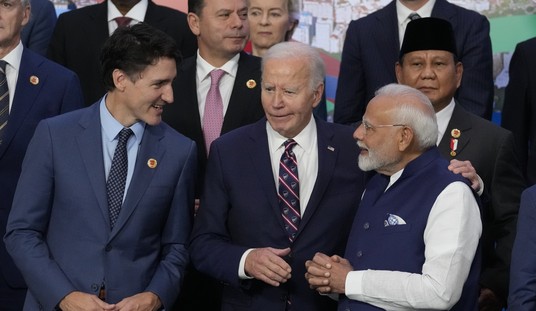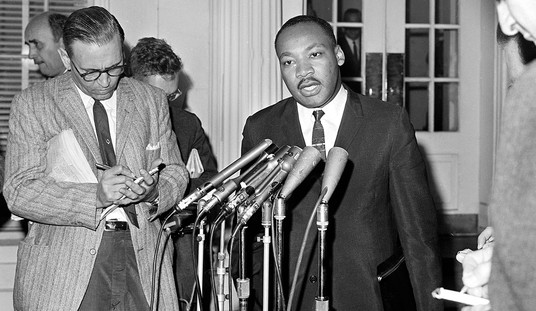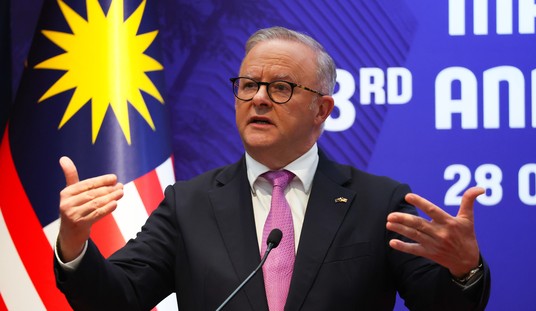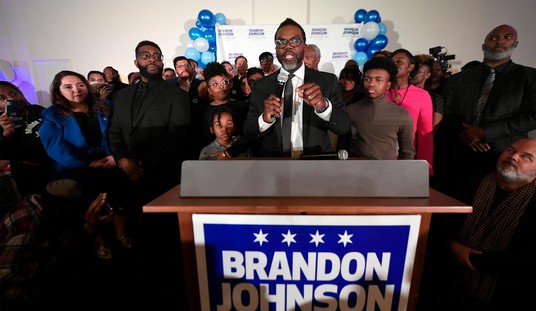No doubt: Barack Obama has what it takes to be a terrific law student. It’s less clear those are the ingredients of a successful president…
The law student gets points for identifying the issue. The president only succeeds by proposing — and implementing — a solution…
Thus, Obama on drone strikes: On the one hand, the risk of civilian casualties from drones must be weighed against the cost of inaction. The risk of using drones must be weighed against the risk of conventional military means, simultaneously less precise and more dangerous…
Brilliant, if you were scribbling exam answers in a blue book. Less impressive five years into a presidency. It seems a little late in the day for the president to talk about looking forward “to actively engaging Congress to explore these and other options for increased oversight.”
President Obama has been on an emotional jag lately. He was outraged by the IRS targeting of his political opponents, is shocked by the subpoena of James Rosen’s emails and (implicitly) repulsed by the drone strike that killed a 16 y.o. American citizen on his orders. It’s all very shocking and he knew nothing (except when he did) but in those cases he’s going to make sure it never happens again.
The idea behind all of these responses is that the person responsible has learned their lesson. Everything in Washington becomes an Aesop’s fable the moment it goes wrong. The powerful ham-handedly act out the role of the enlightened pupil and then carry on as if expecting more than a self-inflicted slap on the wrist would be, well, outrageous.
The Justice Department knew it was breaking new ground with its action in the Rosen case, and you don’t forget it when you do something unprecedented.
But Holder isn’t breaking new ground with his denials here. He’s merely following his boss’s fascinating habit of acting as though policies for which he is responsible have nothing to do with him.
For example: In his landmark “ending the War on Terror” speech last week, President Obama issued a peculiar scolding on the subject of the detention of terrorists at Guantanamo Bay.
“Look at the current situation, where we are force-feeding detainees who are being held on a hunger strike,” he said. “Is this who we are?”
One thing we know for sure: It’s who he is.
The president is not, however, always so good at the little things. It’s why the scandal at the Internal Revenue Service has been so damaging: It’s as if big blunders by a second-tier agency aren’t something he should trouble his gray head about.
Like most Democrats, Obama wants Americans to trust government to do big things well. Therefore the president might try a kind of broken-windows theory of governing: Fix the small things first and the big things will follow.
By that measure, he would have been invested in making the IRS work. It is the federal agency that most resembles a state’s Department of Motor Vehicles, intersecting with the most citizens the most often. Shorten a few tax forms, and the president could instantly improve the reputation of an annual and feared irritant in the side of every citizen.
Because Obama is Too Big To Fret over the little things, they often get Too Big To Fix by the time he does. The current IRS scandal arose not because there was impermissible political interference, but because there wasn’t enough political oversight. Obama hadn’t appointed an IRS commissioner who would have his back and could have sniffed out a political problem.
As Bill Clinton noted, it was strange that Obama was good at the big stuff, like foreign policy, and bad at the easy stuff, like connecting to people…
Obama is not a needy person, but he needs to think of himself as purer than this town…
At East Room events, Alter writes, Obama’s vibe was clearly: “I’ll flash a smile, then, please, someone get me the hell out of here. It wasn’t that he had to be back in the Oval Office for something urgent. He just didn’t want to hang out for an instant longer than he had to, even with long-lost Chicago friends.” The president sometimes “exuded an unspoken exasperation: I saved Detroit, the Dow is up, we avoided a depression — I have to explain this to all of you again?” That attitude caused him to tank in his first debate with Mitt Romney.
David Plouffe told Alter that Obama was “better suited to politics in Scandinavia than here,” meaning, Alter writes, “that he was a logical and unemotional person in an illogical and emotional capital.” Ironic, given that it was Obama’s emotional speeches that precociously vaulted him into the Oval Office.
Harry Truman famously kept a sign on his desk in the Oval Office, “The Buck Stops Here.” Sixty years later, President Obama hangs a sign on the door to the Oval Office, “Do Not Disturb.”…
Do not disturb the chief executive, charged with taking care that the laws are faithfully executed, when there are reports and letters from members of Congress concerning the targeting of political opponents by his IRS, or when his Justice Department violates its own guidelines when going after the press, or when the implementation of his major legislative initiative is proving to be a train wreck.
It should be noted that today’s liberals are disturbed about some things. They’re disturbed about sexual harassment, politically incorrect speech, any resistance to the right to kill unborn babies, and Islamophobia, to pick a few items more or less at random. On these occasions, the Do Not Disturb sign is removed, and the front desk is bombarded with whining and insistent calls: Service, Now!…
The country will pay a price for having, for a few more years, a liberal president who doesn’t choose to be disturbed by what should disturb him. But the real price would be if he (and his minions) convinced us not to be disturbed by the mounting threats to our well-being abroad and to liberty at home. He won’t succeed.








Join the conversation as a VIP Member